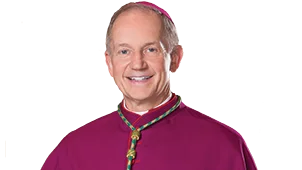
Bishop Thomas John Paprocki | Diocese of Springfield
Several private companies are attempting to bring back extinct species using DNA and cloning technologies. Among the species targeted for revival are the dire wolf, woolly mammoth, and dodo bird.
Current de-extinction technology is limited, typically allowing only a few genetic changes in existing species. This approach modifies animals so they resemble long-extinct creatures. Recent reports indicate that Colossal Biosciences has introduced several genetic changes into a modern gray wolf's genome, creating an animal that looks and behaves differently but remains mostly a gray wolf. It represents a hybrid rather than a true dire wolf.
The use of CRISPR technology in these efforts raises ethical concerns due to its complexity and potential unforeseen effects like aggressiveness or birth defects. Mistakes could have significant consequences if not managed properly.
Another concern is the isolation of revived animals in large enclosures at undisclosed locations. These animals exist without peers and cannot be released into the wild, raising questions about their welfare and ecological impact. Ecologist Ben Novak emphasizes that de-extinction should focus on "ecological restoration and function."
Ecological niches are complex, as shown by past rewilding efforts like the reintroduction of wolves to Yellowstone National Park in 1995. David Blockstein from the National Council for Science and the Environment warns that bringing back extinct species might create invasive problems instead of restoring balance. Synthetic biologist Lynn Rothschild adds that it risks fragile ecosystems.
Introducing novel species can lead to ecological disruptions, as seen with cane toads in Australia causing declines in native predators due to their toxicity.
Determining which species to resurrect presents another ethical issue. Decisions may be driven by an animal's appeal rather than ecological importance, potentially diverting resources from protecting endangered species.
While de-extinction does not cross fundamental ethical lines, clarity and ecological rigor are essential in these endeavors. Father Tadeusz Pacholczyk notes that while genetic engineering is not inherently objectionable, transparency about motivations is crucial.
Father Tadeusz Pacholczyk holds a doctorate in neuroscience from Yale University and serves as Senior Ethicist at The National Catholic Bioethics Center in Philadelphia.





 Alerts Sign-up
Alerts Sign-up